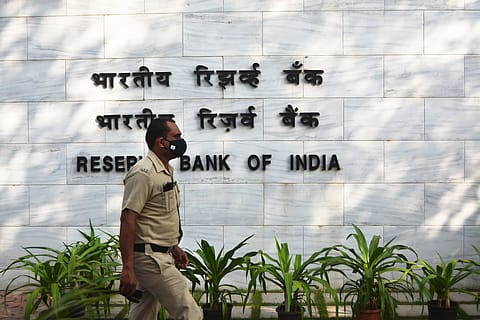Penal interest can’t be used as revenue enhancement tool: RBI to lenders
RBI issues draft rules on penal charges related to loan accounts; wants entities to ensure “reasonableness and transparency” while disclosing penal interests

The Reserve Bank of India (RBI) has released the draft rules on penal charges related to loan accounts. In its circular, the RBI has issued guidelines to the regulated entities to ensure “reasonableness and transparency” while they make disclosures regarding penal interests.
The apex bank says it has observed that many entities use penal rates of interest, over and above the applicable interest rates, in case of defaults. "The intent of levying penal interest/charges is essentially to inculcate a sense of credit discipline among borrowers through negative incentives and to ensure fair compensation to the lender. Penal interest/charges are not meant to be used as a revenue enhancement tool over and above the contracted rate of interest," says the RBI.
The central bank's supervisory reviews have indicated divergent practices amongst the regulated entities with regard to levies of penal interest or charges, which has led to customer grievances and disputes.
In its instructions for such entities, the RBI says the determination of interest rates on credit facilities, including conditions for reset of interest rates, will be "strictly governed by the relevant regulatory instructions" and entities will not introduce any additional component to rate of interest.
Penalty, if charged, for default or non-compliance of loan contract by the borrower, will be treated as ‘penal charges’, says the RBI. It will not be levied in the form of ‘penal interest’ that is added to the rate of interest charged on the advances.
"There shall be no capitalisation of penal charges, i.e, no further interest computed on such charges. However, this will not affect the normal procedures for compounding of interest in the loan account," says the RBI.
The rate of interest on a loan includes an appropriate credit risk premium reflecting the credit risk profile of the borrower. "If the credit risk profile of the borrower undergoes change, REs will be free to alter credit risk premium as per the contracted terms and conditions, in terms of extant instructions," say the guidelines.
Also, the quantum of penal charges will be proportional to the defaults or non-compliance of loan contracts beyond a threshold. This threshold is to be determined by the regulated entities and will not be discriminatory within a particular loan or product category, the RBI adds.
The RBI has also said the penal charges in case of loans sanctioned to individual borrowers, for purposes other than business, will not be higher than the penal charges applicable to non-individual borrowers.
The entities must also disclose the penal charges and the conditions precedent to the customers in the loan agreement. Whenever reminders for the payment of instalments are sent to borrowers, the applicable penal charges must also be communicated. The REs will also ensure there is a clearly laid down board-approved policy on penal charges or similar charges on loans.
The above instructions will not apply to credit cards, says the RBI, adding that they are covered under product-specific directions.
(INR CR)